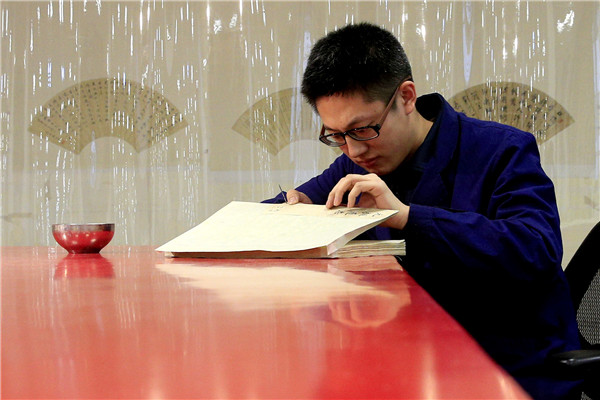Master of glue
 |
|
Nineteen young professionals including Tian Tingting and Li Yidong (above)restore ancient books at the National Library of China in Beijing. JIANG DONG/CHINA DAILY |
Today, 12 of the 19 restorers in the library were born after 1980.
Li has been working in the restoration room for a year and a half, after studying ancient painting and calligraphy appraisal at the China Central Academy of Fine Arts. He still feels he has a lot to learn before he can begin repairing the most important books.
"Without five to six years' practice, I won't dare independently fix a book," Li says. "I'll follow the masters' advice. First of all, I have to learn how to make paste."
The restorers are now working on Tianlu Linlang (named after an auspicious animal and fine jade), the book collection of Emperor Qianlong (1711-1799). Many of the pages in the books are stuck together, so restorers have to work carefully to separate the pages without damaging the content.
Li's colleague Cui Zhibin has worked in the library for four years since graduating from Capital Normal University in fine-arts history.
"When the pages are before me, they look like puff pastry," says the 30-year-old. "Each page is adhered to another. The crispy paper is made of bamboo. When you touch it, it almost falls apart. You cannot be too careful when separating them."
The most common way to separate pages is the most simple: Steam them in a pot for six minutes and carefully peel them apart.
















